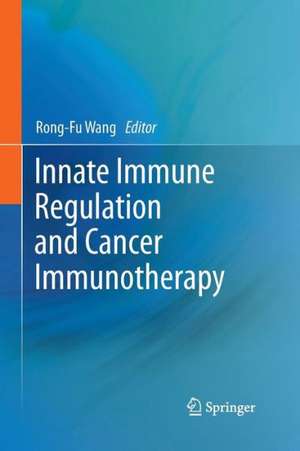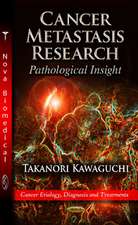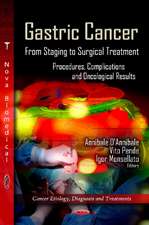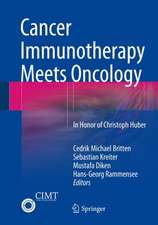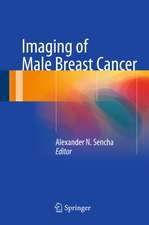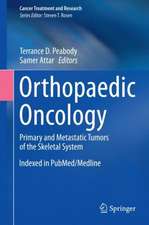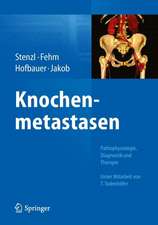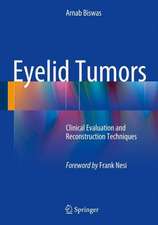Innate Immune Regulation and Cancer Immunotherapy
Editat de Rong-Fu Wangen Limba Engleză Paperback – 23 noi 2014
| Toate formatele și edițiile | Preț | Express |
|---|---|---|
| Paperback (1) | 1104.84 lei 6-8 săpt. | |
| Springer – 23 noi 2014 | 1104.84 lei 6-8 săpt. | |
| Hardback (1) | 1110.32 lei 6-8 săpt. | |
| Springer – 30 noi 2011 | 1110.32 lei 6-8 săpt. |
Preț: 1104.84 lei
Preț vechi: 1162.99 lei
-5% Nou
211.42€ • 226.07$ • 176.27£
Carte tipărită la comandă
Livrare economică 18 aprilie-02 mai
Specificații
ISBN-10: 1489985905
Pagini: 488
Ilustrații: X, 478 p.
Dimensiuni: 155 x 235 x 26 mm
Greutate: 0.68 kg
Ediția:2012
Editura: Springer
Colecția Springer
Locul publicării:New York, NY, United States
Public țintă
ResearchCuprins
Textul de pe ultima copertă
Features of this book:
Offers the most recent development from basic science to clinical application of cancer immunotherapy, thus serving useful guide for immunologists, and cancer researcher and oncologists.
Identify key immune signaling molecules and cell populations that dampen immune responses against cancer, thus providing novel strategies to develop therapeutic cancer vaccines and drugs.
Caracteristici
This book will discuss the regulation of innate immunity through Toll-like receptor (TLR) signaling
Additionally, this book will offer an overview of recent developments in topics of cancer immunotherapy
Includes supplementary material: sn.pub/extras
Descriere
Innate and adaptive immunity play important roles in immunosurveillance and tumor destruction. However, increasing evidence suggests that tumor-infiltrating immune cells may have a dual function: inhibiting or promoting tumor growth and progression. Although regulatory T (Treg) cells induce immune tolerance by suppressing host immune responses against self- or non self-antigens, thus playing critical roles in preventing autoimmune diseases, they might inhibit antitumor immunity and promote tumor growth. Recent studies demonstrate that elevated proportions of Treg cells are present in various types of cancers and suppress antitumor immunity. Furthermore, tumor-specific Treg cells can inhibit immune responses only when they are exposed to antigens presented by tumor cells. Therefore, Treg cells at tumor sites have detrimental effects on immunotherapy directed to cancer.
